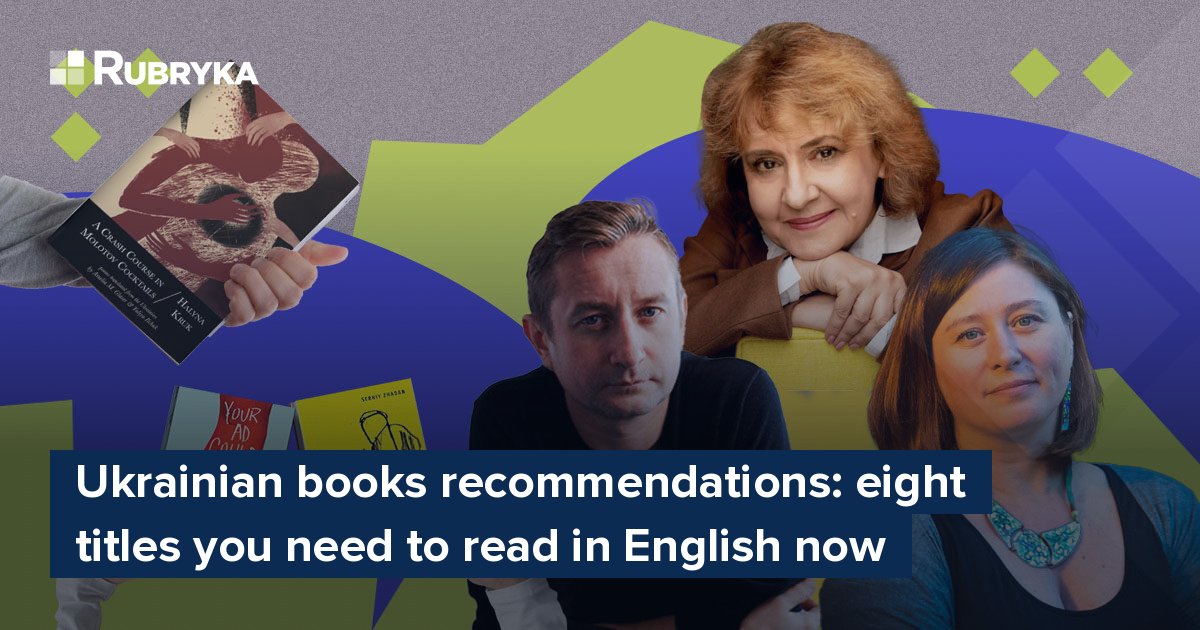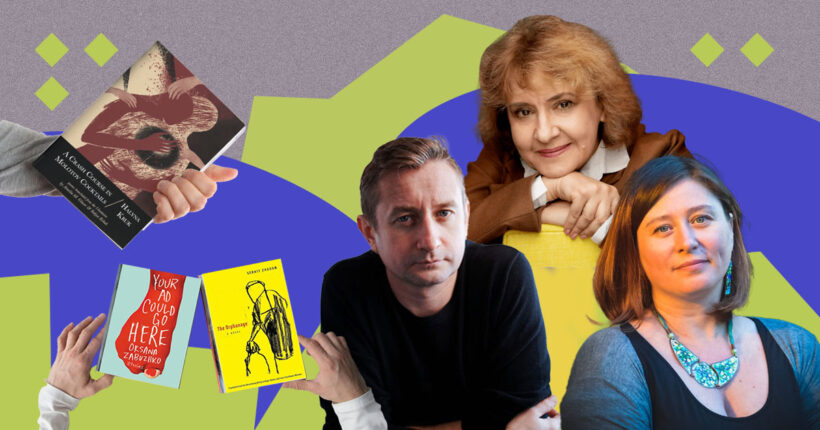
1. Forgottenness: A Novel by Tanja Maljartschuk
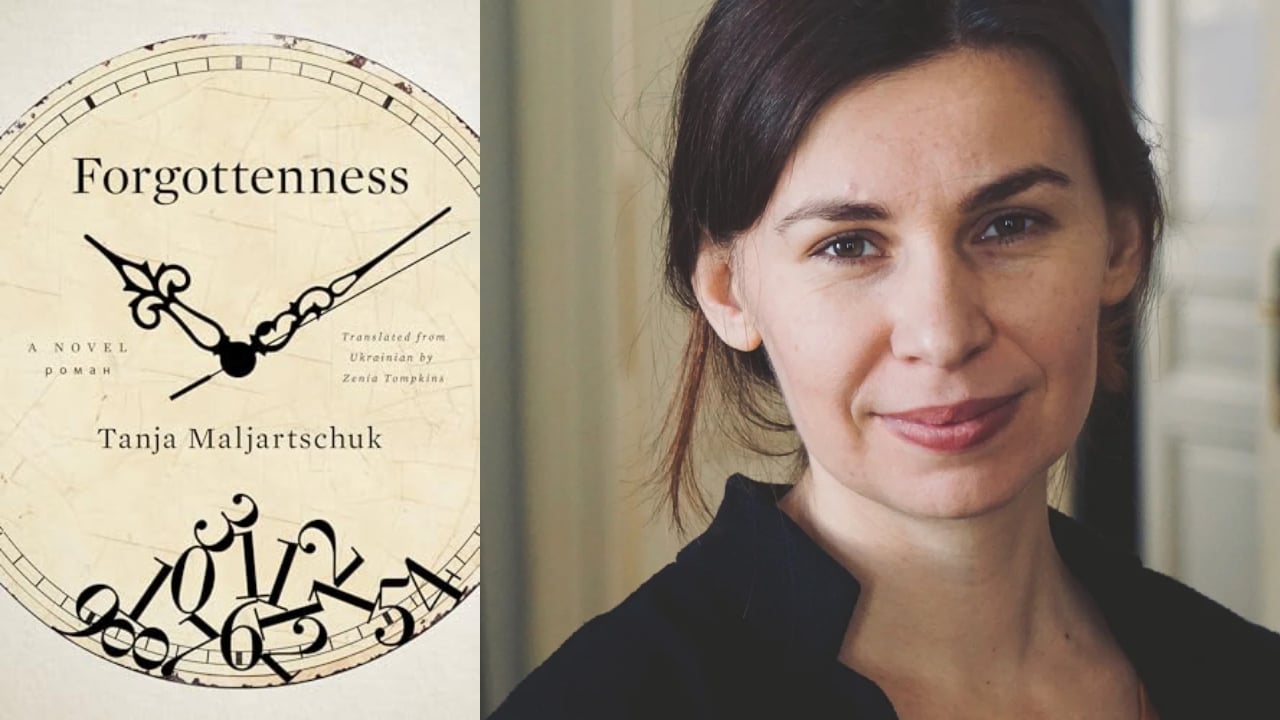
Ukrainian books recommendations: The cover of Forgottenness and Ukrainian author Tanja Maljartschuk. Photo: Pen Ukraine
Tanja Maljartschuk's Forgottenness, translated by Zenia Tompkins and published in January 2024, is a captivating story about memory, time, identity, and the Ukrainian experience. The award-winning novel combines historical and personal narratives — the biography of renowned Ukrainian political activist Viacheslav Lypynskyi (1882-1931), who significantly contributed to the formation of Ukrainian sovereignty, and the vulnerable memoir of an unnamed woman narrator in modern-day Ukraine, who struggles with symptoms of depression and hypochondria and finds solace in studying Lypynskyi's life.
Mining deep into research, the protagonist learns that she and the historical figure have many things in common: they are both uprooted, living in exile, and grappling with illnesses. However, the heroine is critical of herself, contrasting her "unimportant" writing work with the activist's rich life. As Maljartschuk alternates and intertwines their stories through the novel, she offers food for thought on how time can be ruthless, consuming "everything living by the ton, like a gigantic blue whale."
2. Mondegreen: Songs about Death and Love by Volodymyr Rafeyenko
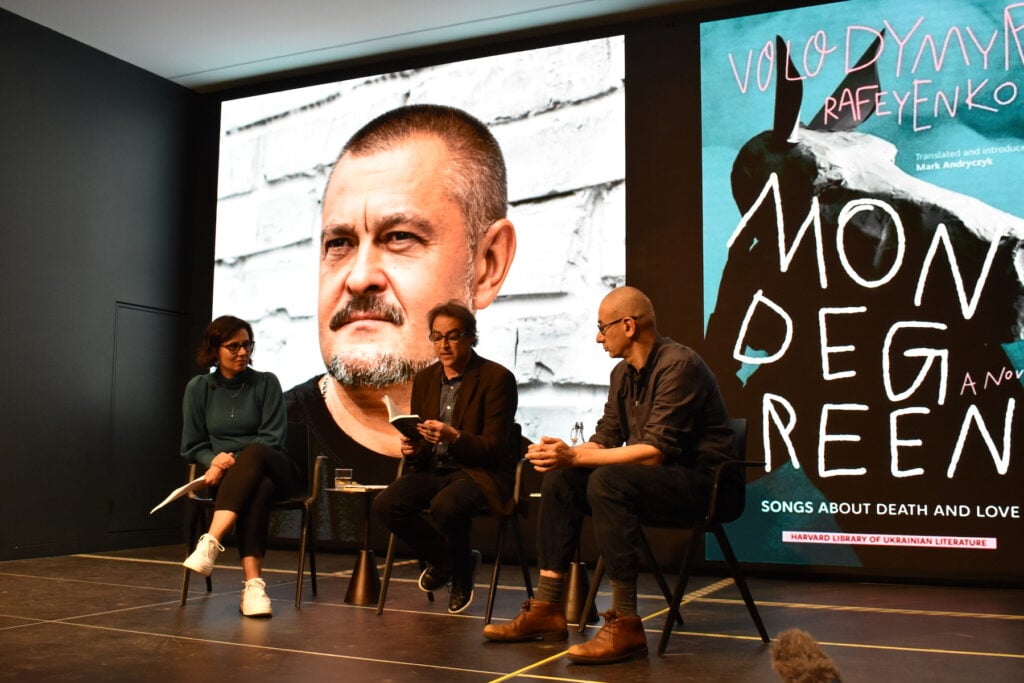
Ukrainian books recommendations: The reading of Mondegreen: Songs About Love and Death by Volodymyr Rafeyenko at the event "In Translation: Voices from Ukraine" of The Center for Fiction in New York. Photo: The Center for Fiction
In Mondegreen: Songs about Death and Love, a novel translated into English by Mark Andryczyk, Ukrainian author Volodymyr Rafeyenko recounted his experience of a displaced person forced to flee the 2014 Russian occupation of his eastern hometown of Donetsk. In his book, protagonist Haba Habinskyi also escapes the war and moves to Kyiv, where he, as a Russian speaker, decides to fully adopt Ukrainian, his ancestors' native language.
Through Haba's story, Rafeyenko explores the importance of language as a builder of national identity and the extreme transformation a person can undergo in a new home with a different cultural space. The phenomenon of mondegreen — a misheard and misinterpreted word or phrase from a song lyric that a person accepts as correct — represents how confusing and overwhelming it can be for a learner to perceive a new language. With many folk songs and classic poems heard and read, Haba learns and accepts Ukrainian as an indispensable part of himself.
3. Your Ad Could Go Here: Stories by Oksana Zabuzhko
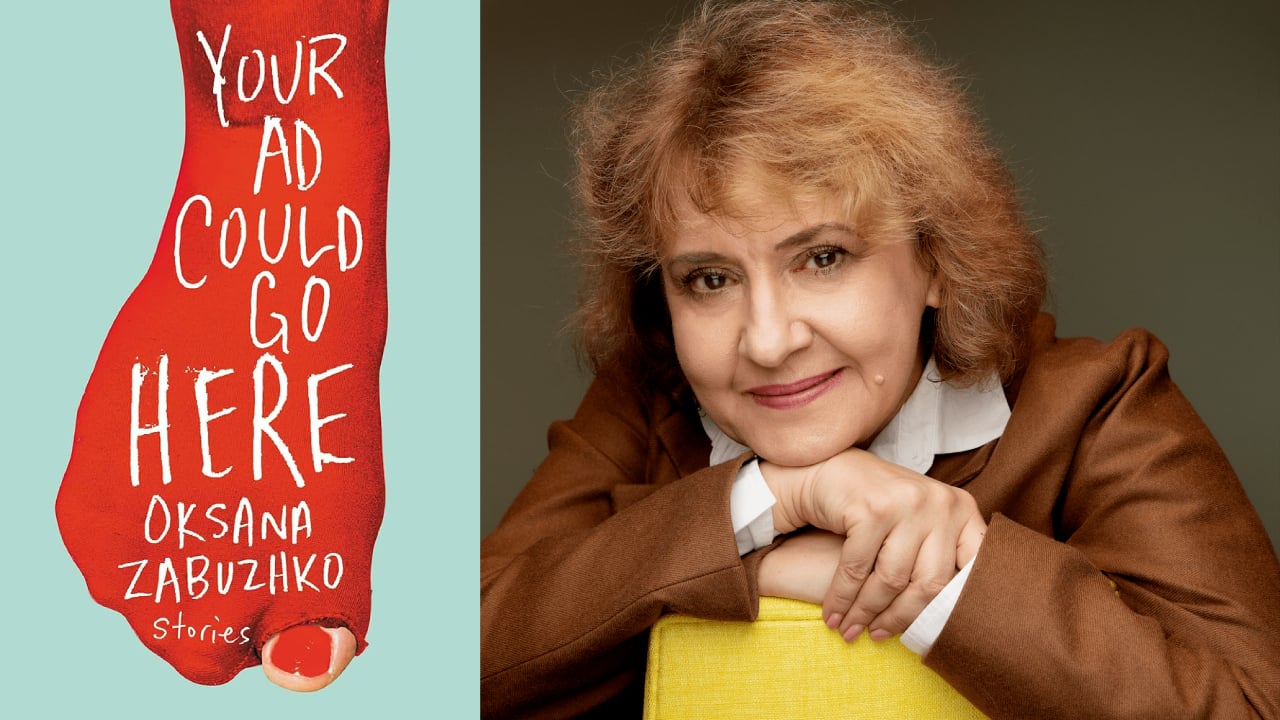
Ukrainian books recommendations: The cover of the Your Ad Could Go Here short story collection and Ukrainian writer Oksana Zabuzhko. Photo: Ukrainian Institute London
Oksana Zabuzhko is a prolific Ukrainian novelist, poet, essayist, and feminist legend whose writing investigates national identity and gender. In her engrossing short story collection, Your Ad Could Go Here, translated in 2020 by a team of gifted translators — Halyna Hryn, Askold Melnyczuk, Nina Murray, Marta Horban, and Marco Carynnyk — Zabuzhko reflects on Ukraine's contemporary and past life, collective memory, and the complexities of women's relationships.
The stories span the gamut, with the characters in her prose being passionate, strong, and deeply connected. Through a story, An Album for Gustav, about a photographer and a foreigner amid the 2014 civil protests, now known as the Revolution of Dignity, Zabushko probes into how people can make history, becoming united in a national uprising. In her rich and raw stories about women, like Oh Sister, Sister, and Girls, the writer explores topics of rivalry, friendship, family relationships, motherhood, menopause, abortion, and more.
4. Ivan and Phoebe by Oksana Lutsyshyna
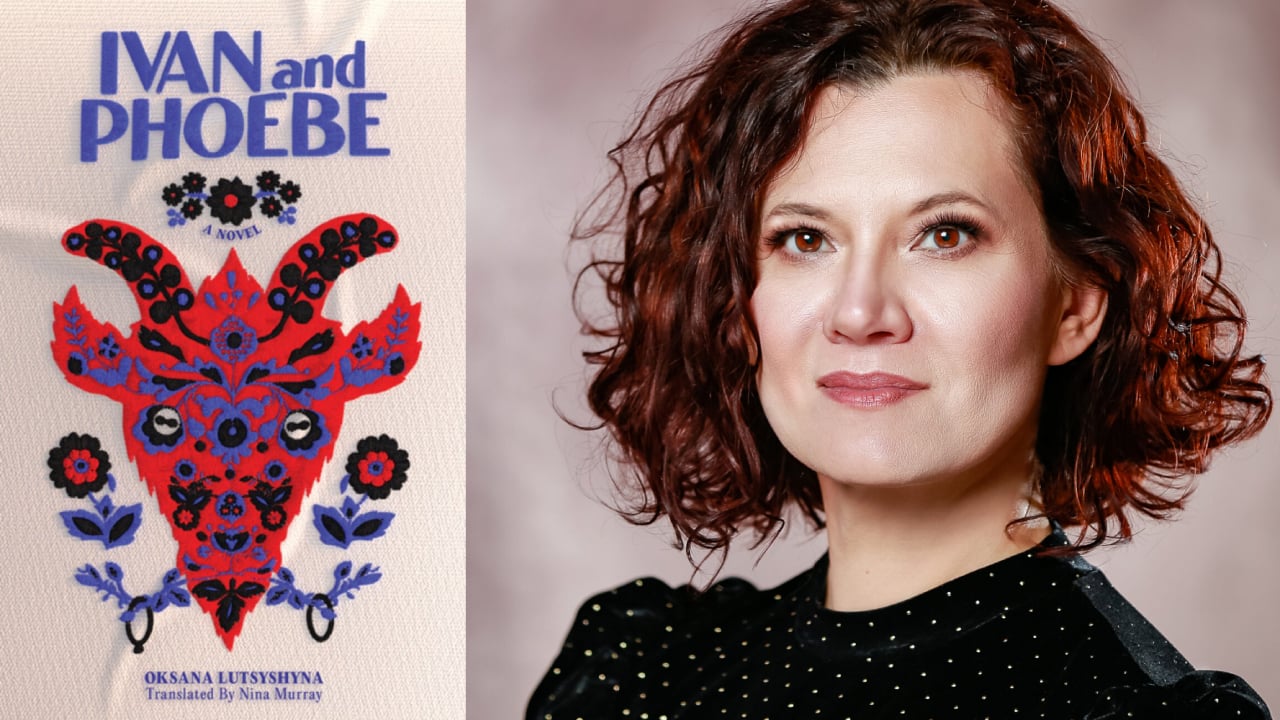
Ukrainian books recommendations: The cover of the novel Ivan and Phoebe and Ukrainian writer Oksana Lutsyshyna. Photo: JLF USA Houston
Oksana Lutsyshyna's Ivan and Phoebe examines one of the most transformative periods in Ukrainian history — the 1990 student protests against the Soviet government, now called the Revolution on Granite, which ultimately helped Ukraine regain its independence. The novelist tells the story of Ukraine's complicated past through the protagonist, Ivan, and discusses topics of social silence, life choices, and the power of institutions.
The narration begins with Ivan participating in the demonstration, having a clear vision and dream for his life and country. Ivan is filled with fear when he notices he has been followed by a stranger after the rallies. After his suspicions materialize and he is questioned by the KGB, a Soviet secret police, he moves back to his small hometown from Kyiv and marries Phoebe, losing his spark.
Translated by Nina Murray and published in 2023, Lutsyshyna's novel primarily focuses on Ivan, an ex-revolutionary broken by Soviet prosecution. However, it also portrays the life of his wife, Phoebe, who is burdened and limited by the institutions of marriage and motherhood.
5. Who Will Make the Snow? by Taras Prokhasko and Marjana Prokhasko
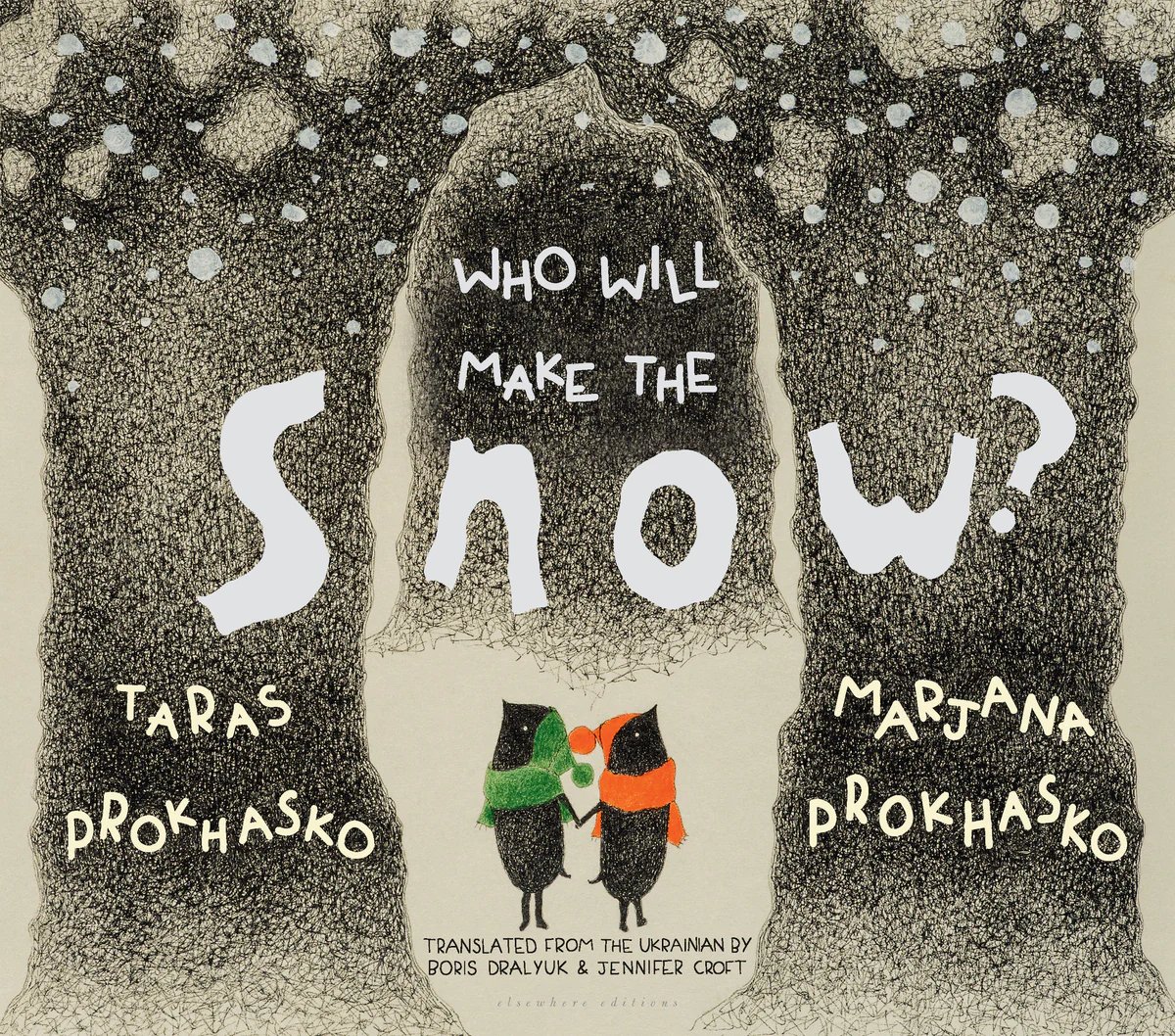
Ukrainian books recommendations: The cover of Who Will Make the Snow? by Taras Prokhasko and Marjana Prokhasko
Taras Prokhasko, a celebrated Ukrainian novelist whose "magical realism" writing has been compared to that of Gabriel García Márquez, wrote the charming children's book Who Will Make the Snow? in 2013 in collaboration with his wife, illustrator Marjana Prokhasko.
Translated into English by Boris Dralyuk and Jennifer Croft and published in 2023, this light book tells the story of a family of four moles — a father working in a forest newspaper, a musician mother playing the double bass, and twins Purl and Crawly, who believe the snow is made by all those who lived before them and are now "among the snowy clouds."
The narration revolves around simple and cozy moments that make life special. It also shows how the mole kids grow and discover more about their natural community. Suitable for children aged 7 to 11, Who Will Make the Snow? was included in The New York Times list of the Best Children's Books of 2023.
6. A Crash Course in Molotov Cocktails by Halyna Kruk
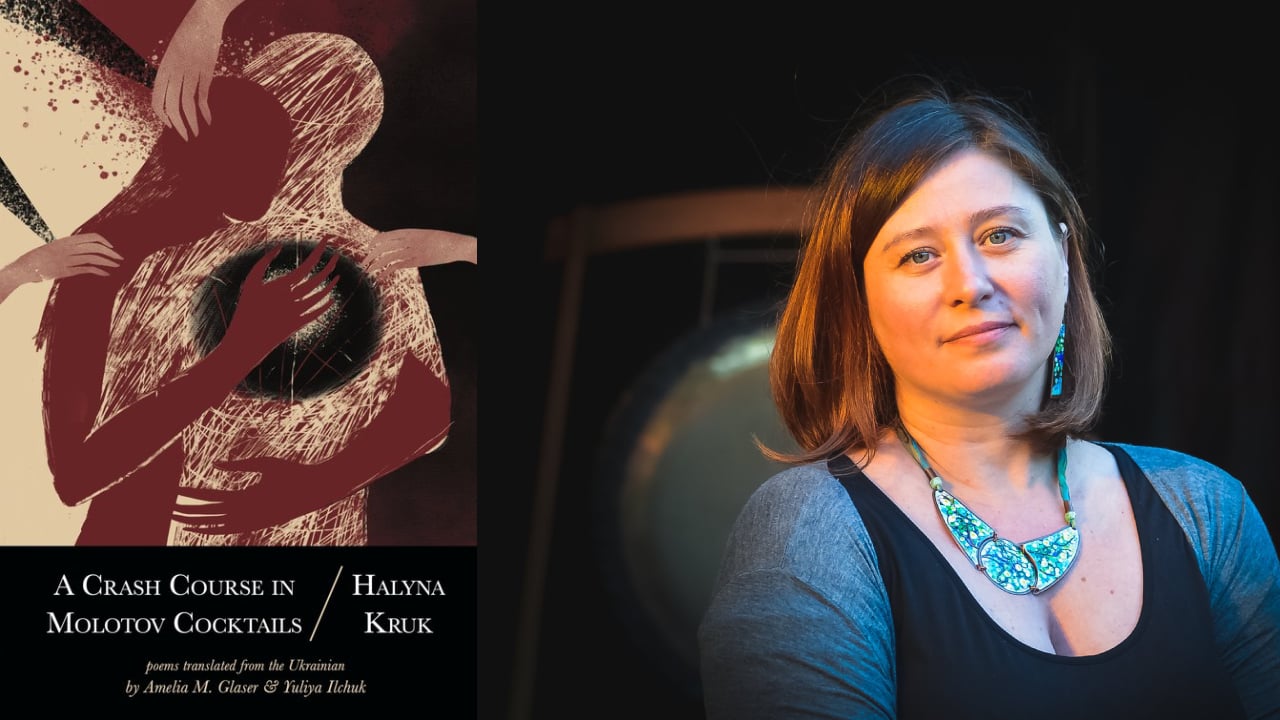
Ukrainian books recommendations: The cover of the A Crash Course in Molotov Cocktails poetry collection and Ukrainian poet and writer Hakyna Kruk. Photo: Chytomo
"Nothing predicted the arrival of humankind…./ nothing predicted the arrival of the tank…" — Halyna Kruk, a Ukrainian poet, wrote all of the poems in her collection A Crash Course in Molotov Cocktails during the last ten years since the 2014 Russian invasion of Ukraine's east and Crimea and after the full-scale war in 2022.
Citing Kruk herself, the poems "document the reality of war, literally, emotionally, and sensually," giving the reader insight into the pain and horror the invasion has brought to Ukrainian lives. She goes to the darkest of places and shares her first-hand experience of war as a woman, writer, and wife of a soldier.
This bilingual poetry collection, translated by Amelia Glaser and Yuliya Ilchuk and published in 2023, was shortlisted for the Griffin Poetry Prize, a prestigious international award. The judges' annotation said her important work visualized "the dire situation of her country but also its people's defiance" and called the collection "necessary and powerful."
7. The Orphanage by Serhiy Zhadan
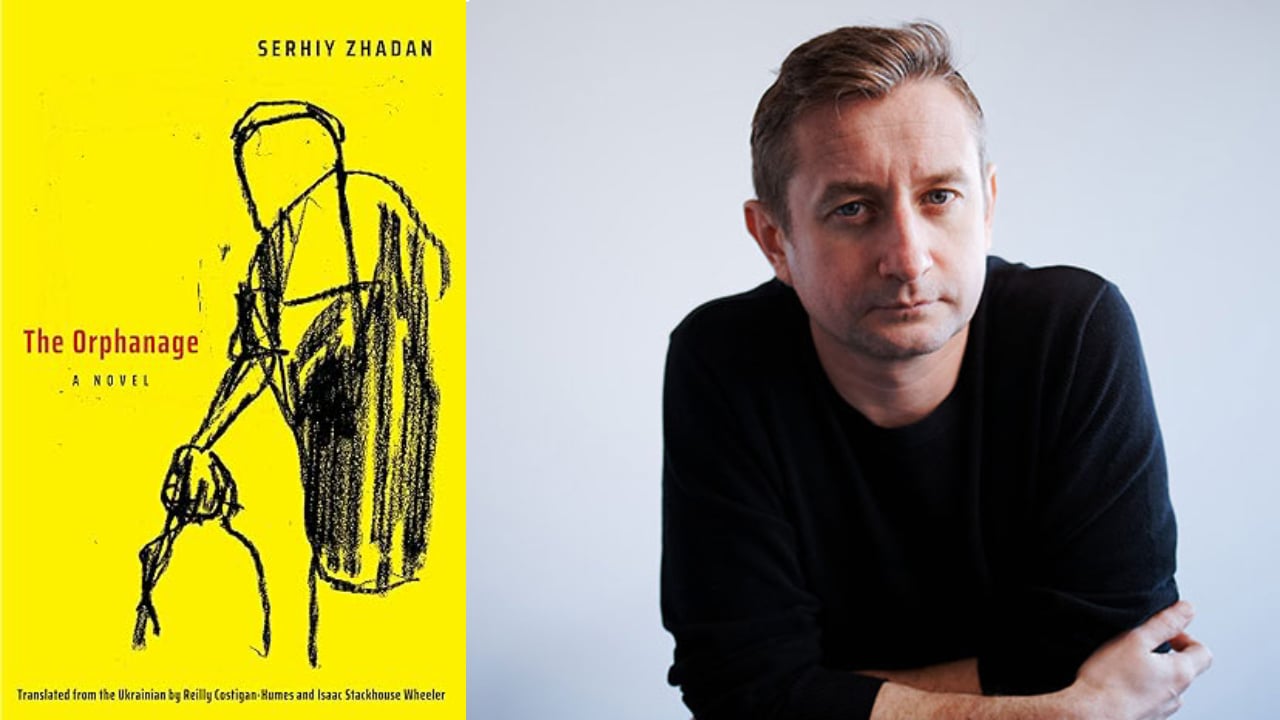
Ukrainian books recommendations: The cover of The Orphanage and Ukrainian writer Serhiy Zhadan. Photo: Dmitriy Larin
Famed Ukrainian writer and poet Serhiy Zhadan's novel The Orphanage is set in a front-line area in Ukraine's east amid Russian invasion and occupation. In his highly acclaimed work, translated to English in 2021 by Reilly Costigan-Humes and Isaac Stackhouse Wheeler, Zhadan immerses the reader in a bleak and dark atmosphere of the cold land, scarred by conflict.
The book depicts the three-day journey of a Ukrainian teacher, Pasha, to retrieve his nephew from an orphanage in the part of his town slowly occupied by Russian soldiers. As he travels, Pasha encounters desertion and damaged buildings — "the first circle of hell," the protagonist thinks. The war changed everything — people, including doctors, are fleeing, so when Pasha's father gets ill, there's no one to help him except the veterinarian.
Such scenes show how relevant Pasha's story is to Ukrainians now amid the destruction of Russia's full-scale war, with death looming on every corner. Despite the despair of a war zone, Serhiy Zhadan tries to show through Pasha's family, which unites during hardship, how important it is for Ukrainians to stay resilient, band together, and give a helping hand to a stranger in need.
8. Looking at Women Looking at War: A War and Justice Diary by Victoria Amelina
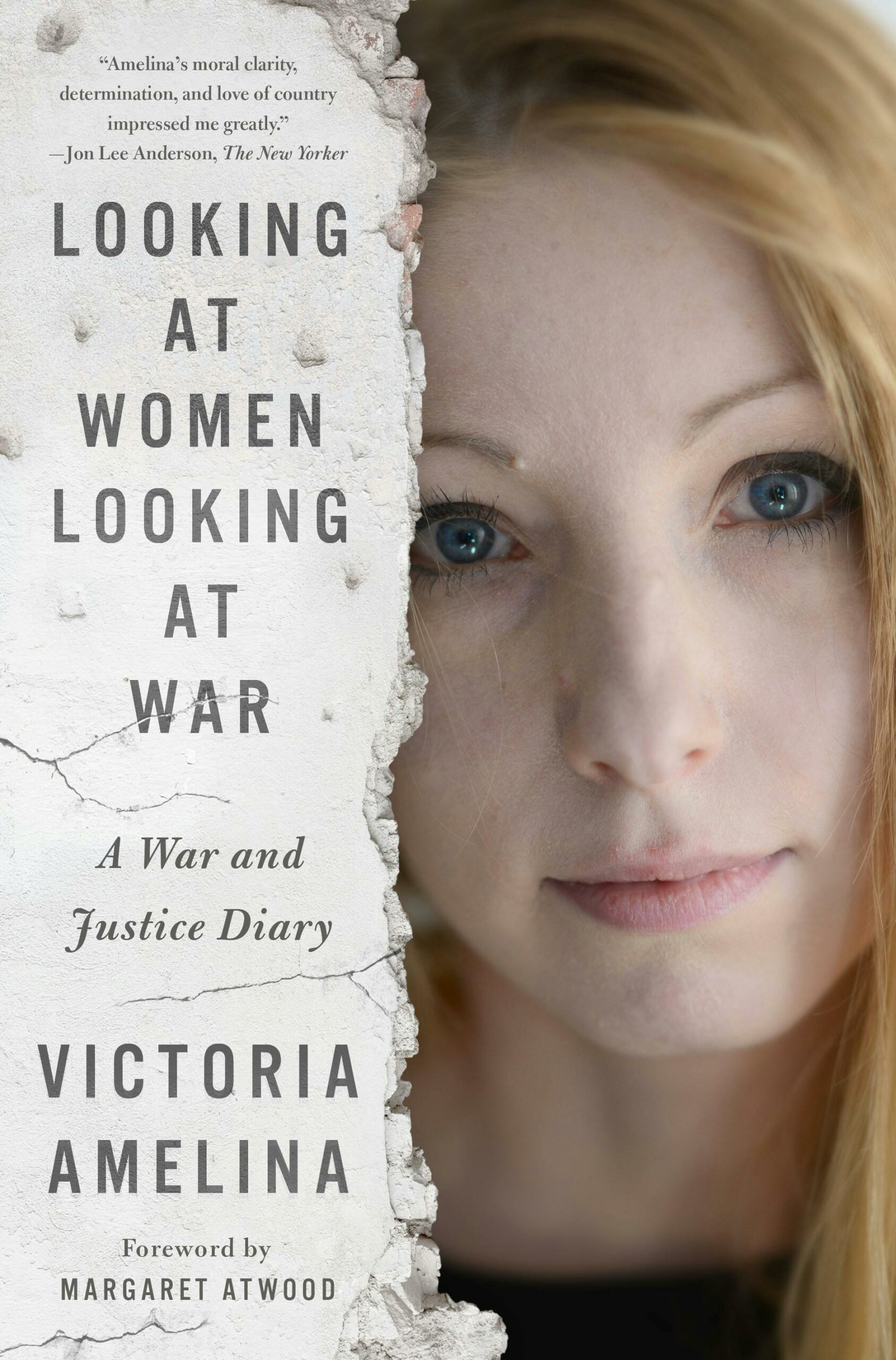
Ukrainian books recommendations: the cover of Looking at Women Looking at War: A War and Justice Diary. Photo: Macmillan Publishers
The memoir by Ukrainian journalist and activist Victoria Amelina, Looking at Women Looking at War: A War and Justice Diary, is yet to be published but is worth a wait and a read. Hailed by its publisher as a book "destined to be a classic," Amelina's work tells the stories of 11 extraordinary Ukrainian women who didn't sit idly by and joined the battle against the enemy, like activist and Nobel Peace Prize winner Oleksandra, who documents Russian war crimes, and Yevhenia, who decided to leave her peaceful life as a lawyer and take up arms and fight on the front line.
Viktoria Amelina was also one of such remarkable women — a writer, poet, journalist, and, after Russia unleashed its full-scale war against Ukraine in 2022, a war crimes researcher. Her life was tragedically cut short — Victoria was killed by a June 27 Russian missile strike on a cafe in the eastern city of Kramatorsk last year at the age of 37 and survived by her 12-year-old son.
Her book Looking at Women Looking at War: A War and Justice Diary will be published posthumously in February next year, on the third anniversary of the Russian all-out invasion. The work will include a foreword by Margaret Atwood, a prominent Canadian novelist and author of Handmaid's Tale.
Recently, Rubryka reported on a bookish solution from Ukraine — follow the link to find out more.
Newsletter
Digest of the most interesting news: just about the main thing




